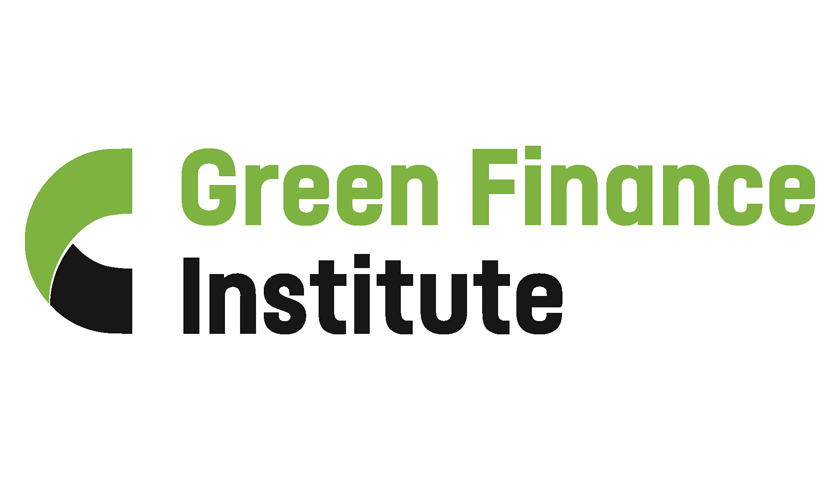The GFI and WWF have published a new report, the “Business Investment in Nature: Supporting UK Economic Resilience and Growth”, demonstrating how a degraded natural environment is negatively impacting businesses across the UK, and therefore hindering economic growth.
At the same time, the report shows how swift and coordinated action can secure the UK’s future growth trajectory by building resilience, improving productivity, and leading in the technologies, materials and financial products that are needed to reduce business impacts on nature and support its restoration.
Should action not be taken, there could be significant ramifications for the UK economy. Nature-related risks, including water scarcity, pollution, flooding, soil degradation and resource scarcity, are already disrupting key sectors such as housing, energy, agriculture, manufacturing and tourism. These risks are driving up operational costs, threatening asset viability and undermining regional economic resilience.
This follows research from the GFI, University of Oxford, University of Reading, UNEP-WCMC and the National Institute for Economic and Social Research which estimated that continued nature degradation, exacerbated by climate change, in the UK could lead to a 4.7% reduction to UK GDP by 2030 – outweighing gains from current growth initiatives[1].
Beyond reducing risk to growth, nature represents a major growth opportunity, as identified by the report.
UK businesses are increasingly investing in nature-based solutions and innovations to reduce their impacts on nature. The report cites over 40 examples illustrating how UK businesses and sectors are taking targeted action, such as regenerative agriculture, water efficiency and circular technologies, and are seeing financial returns and competitive advantage. This includes action from many of the sectors highlighted as priorities for growth under the UK Government’s Industrial Strategy.
While individual businesses are starting to act, they are calling for more guidance and better coordinated action in order to create a level playing field across sectors and to give them the confidence to invest at scale. To unlock these opportunities and manage nature-related risks, the report advocates for the development of Nature-Positive Transition Pathways (NPPs); national plans co-designed by government and the private sector that provide guidance on how different sectors are expected to align with, and deliver on, environmental targets.
The GFI and WWF have been working together to convene businesses and trade organisations[2] , 28 of which have signed a statement supporting the development of NPPs in the UK, as a means to scale up investment, achieve the targets of the Environmental Improvement Plan (EIP), and strengthen the UK’s economic growth prospects.
The government’s revised Environmental Improvement Plan (EIP) offers an opportunity to renew efforts to protect and restore UK nature, and businesses must play a key role, with the private sector critical in delivering nature-related targets.
Environment Secretary, Steve Reed, said: “Thriving nature is the foundation of everything this government wants to achieve. We are working with industry leaders to drive private investment, including through the development of Nature Positive Pathways. These will enable UK businesses to harness the economic opportunities that come from restoring and protecting our natural environment to deliver strong and sustained economic growth, which is this Government’s number one mission. Britain as one of the most nature-depleted countries in the world, I am determined to reverse nature decline and look forward to launching our new plan for nature and the environment in the Autumn, which will set out how we will do this.”
James Close, Director of Climate and Nature at NatWest Group, said: “At NatWest, we believe that nature-positive pathways can help our customers build more resilient, productive, and future-ready businesses. This message is underscored in the report published today by WWF and GFI, which explores the significance of integrating nature into the UK’s economic strategy.”
Vassilis Gkoumas, Economist at WWF, said: “A real plan to save UK nature must bring the private sector with it. The evidence paper published today shows that the scale of the opportunity, and the statement of support demonstrates that many businesses want greater clarity around how they can contribute to the transition. Now we need more to come forward and play their part, and the UK government to recognise Nature-Positive Transition Pathways as a key part of their economic strategy”.
Charlie Dixon, Associate Director at GFI, said: “The empirical evidence is clear that business investment in nature is a powerful engine for economic growth. UK businesses are keen to contribute to the delivery of the UK’s nature targets, but need better guidance and coordination in order to do so. We urge more businesses to join the 28 that have demonstrated their support for the development of Nature-Positive Transition Pathways in the UK to bring this clarity.”
Cressida Curtis, Group Sustainability Director at Wates Group, said: “Reversing the decline of nature is critical to ensure we all have food to eat, water to drink and fresh air to breathe. Science-based, representative, and robust NPPs will give individual businesses the confidence to play a meaningful role in this shift. The built environment has a huge impact on nature – both through construction sites and the supply chain, which extracts around half the world’s natural materials. That means that if we shift how we operate to adopt regenerative practices, we can make a huge positive difference. At Wates, we’re taking a three-step approach: first, we are already looking to increase biodiversity on our sites and developments by 20%, which is twice the mandatory minimum. Second, we’re mapping our supply chain impact so we can target the areas that will make the greatest difference; and third we intend to integrate natural factors into our decision-making process, so we make nature-positive decisions – and can help customers do the same – as a matter of course.”
Liv Garfield, CEO at Severn Trent, said: “Given the unprecedented level of investment in infrastructure planned over the next decade, it’s vital that the UK takes action to protect nature and build resilience to climate impacts through enhancing nature, which in turn will drive economic growth. Local knowledge and insight is key to developing good nature recovery projects that work in a specific geography, such as working with Derbyshire Wildlife Trust to create 30 floating wetlands at Severn Trent’s new Witches Oak water treatment works, improving 46 hectares of nature to boost biodiversity. Green skills and the need for business to invest in skills related to the development and maintenance of nature will result in a thriving workforce equipped for the challenges of today and tomorrow, and will ensure long term goals for nature are delivered.”
Examples cited in the report:
Water shortages, pollution and flood risks are hampering efforts to increase investment in energy, infrastructure and housing. Increased water stress in the UK is expected to reduce dependable thermal power capacity, which can use high volumes of freshwater, by about 50%, leading to an estimated additional £20-450 million per year in system costs. Over six million properties across the UK are currently at high risk of flooding and this is expected to rise to eight million by 2050.
At the same time, water quality is deteriorating rapidly with particularly serious impacts for food production, tourism, hospitality and manufacturing sectors. Intensive agriculture practices are degrading the quality of soils in the UK, potentially costing the economy up to £1.4bn per year, while the resulting increased reliance on artificial fertilisers contributed to dramatic food price inflation in recent years.
Other examples in the report include:
- Water stress: threatens housing and energy developments. Businesses like Diageo and water utilities are investing in efficiency processes and in securing supply.
- Water quality: affects the agrifood sectors, and tourism. Firms are investing in on-site treatment and sustainable land management.
- Flood and storm protection: poses high risk to infrastructure, homes, and agriculture. Natural flood management solutions are emerging.
- Soil health: degradation raises input costs and jeopardizes food security. Regenerative farming and precision technologies offer resilience to weather events and price inflation.
- Resource efficiency: circular economy and alternative materials reduce reliance on virgin resources and drive innovation.
- Sustainable finance: investment in nature lags behind net zero finance but presents similar potential for growth, if policy clarity improves. Already some financial institutions have developed products to finance the transition to incentivise sustainable practices.

